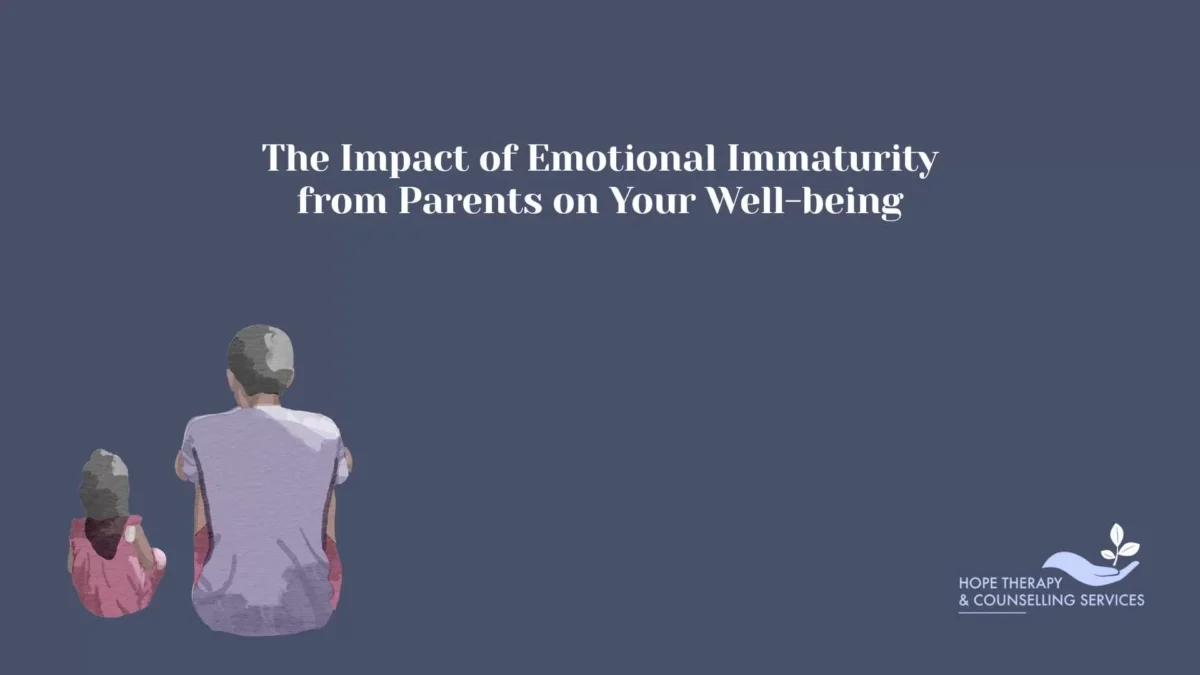Not all wounds are physical, and not all trauma comes from chaos. Sometimes, it comes from silence. From the parent who couldn’t validate your feelings. Who made everything about them. Who left you questioning your own emotions, even as an adult.
Emotional immaturity in parents is more common than many realise — and its effects can echo far beyond childhood. If you’re constantly anxious in relationships, unsure of your self-worth, or feel a gnawing sense of loneliness even when surrounded by others, your upbringing may be playing a bigger role than you think.
What Does Emotional Immaturity in Parents Look Like?
Not all emotionally immature parents were cruel. Some were loving but inconsistent. Others were overwhelmed by their own unprocessed pain. The key theme is this: they were emotionally unavailable, self-focused, or ill-equipped to meet your emotional needs.
Common signs of emotional immaturity in a parent:
- They couldn’t tolerate emotional discomfort
- They dismissed or mocked your feelings
- They made everything about themselves
- They relied on you to meet their emotional needs
- They had explosive reactions or emotional shutdowns
- They struggled to apologise or self-reflect
This can leave a child emotionally abandoned, even in a physically present home.
The Long-Term Effects on Your Emotional Well-being
Being raised by emotionally immature parents can shape how you see yourself, others, and the world.
1. Struggles with Boundaries
You may have been taught, directly or indirectly, that your needs were selfish. As an adult, this can show up as difficulty saying no, fear of upsetting others, or chronic people-pleasing.
2. Low Self-Worth
When your emotions were dismissed, you likely internalised the message that your feelings don’t matter. This can turn into harsh inner criticism and difficulty believing you deserve healthy relationships.
3. Difficulty Expressing Emotions
You may have learned to bottle things up to keep the peace. As an adult, this can result in emotional suppression, shutdown in conflict, or sudden emotional outbursts when things build up.
4. Anxious or Avoidant Relationship Patterns
Emotionally immature parenting often leads to insecure attachment styles. You might find yourself clinging tightly in relationships, or withdrawing altogether to avoid being hurt.
5. Chronic Guilt or Shame
If you were made to feel responsible for your parent’s moods, guilt may be your emotional baseline — even when you’ve done nothing wrong.
Recognising the Pattern: It Wasn’t Your Fault
Children are wired to seek connection, even in dysfunction. Many adults carry shame for still loving their emotionally immature parents or for not “just getting over it.”
But you didn’t cause the emotional gap. You adapted to survive it. Recognising that is the first step to healing.
Steps to Reparent Yourself and Heal
Healing from emotionally immature parenting isn’t about blaming — it’s about understanding. And then choosing differently.
1. Name the Wound
Give language to your experience. Books like Adult Children of Emotionally Immature Parents by Lindsay Gibson can help. So can counselling, where you can safely explore your emotional history.
2. Validate Your Inner Child
You may still carry a younger part of yourself that feels unseen or too much. Reparenting means listening to that part with compassion and protection.
3. Learn Healthy Emotional Regulation
If you weren’t shown how to sit with emotion, it’s not too late. Mindfulness, journalling, and therapy can all help you develop new coping tools.
4. Set New Boundaries
This may mean limiting contact, changing the subject, or refusing to take responsibility for your parent’s feelings. It can feel unnatural at first — that doesn’t mean it’s wrong.
5. Build Relationships Based on Mutual Emotional Maturity
Seek connections where your emotions are welcomed, not weaponised. It might feel unfamiliar — but that’s the point. You’re choosing something new.
Counselling Can Help You Break the Cycle
Healing from emotionally immature parenting isn’t just about insight — it’s about integration. A qualified counsellor can help you unpack the legacy you’ve inherited and support you as you build something different.
At Hope Therapy & Counselling Services, we offer compassionate, tailored support for adults exploring their emotional patterns and childhood roots. Whether online or face-to-face, you don’t have to figure this out alone.
Book your free consultation here and take the first step towards emotional clarity and freedom.
Frequently Asked Questions
Can I heal if my parent never changes?
Yes. Healing doesn’t depend on them changing — it depends on you choosing your own emotional growth. You can stop the cycle even if they never acknowledge the harm.
How do I deal with guilt when setting boundaries?
Guilt is a common side effect of change. It often signals you’re doing something unfamiliar, not wrong. Counselling can help you work through this and develop boundary confidence.
Is it OK to still love my emotionally immature parent?
Yes. Love and boundaries can coexist. You can care for someone while still choosing what’s healthiest for your emotional wellbeing.
You Deserve to Be Emotionally Seen
If your upbringing left you feeling invisible, reactive, or burdened with shame — you’re not broken. You adapted. And now, you get to choose something more whole.
Book your free counselling consultation today →
Hope Therapy & Counselling Services offers online and in-person support throughout the UK. Our experienced team is here to help you heal, grow, and rewrite the emotional story you were handed.

